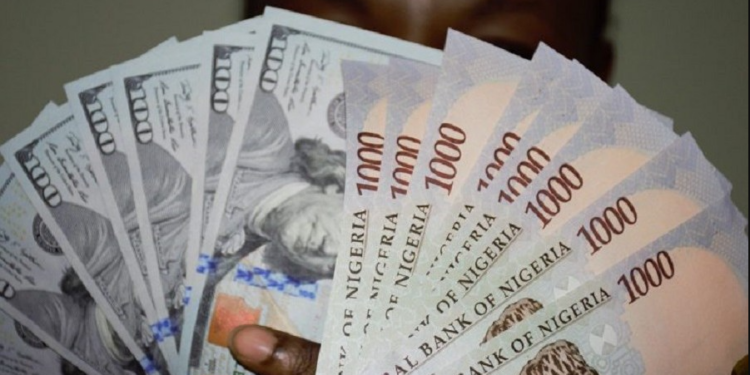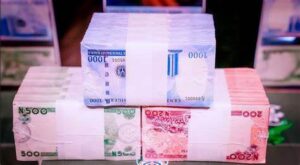Ogasabi on 9am news reports that the local currency, the naira, experienced a notable slump against the dollar in the official trading session of the month. This breaking news highlights the ongoing challenges in Nigeria’s foreign exchange market. At the official window, the naira settled at N1,598/$1, slightly higher than Thursday’s rate of N1,593/$1, according to data from the Nigerian Autonomous Foreign Exchange Market.
The dollar’s turnover in the market surged by 11%, reaching $172.8 million compared to Thursday’s $155.52 million. Meanwhile, on the black market, the naira depreciated further, trading at N1,625/$1 despite increased efforts by the apex bank to stabilize Nigeria’s FX market.
This recent depreciation underscores the complexities within Nigeria’s foreign exchange dynamics, particularly during periods of heightened economic activity. The margin between the parallel market and the NAFEM rate widened to N27 per dollar from the previous N21 per dollar on Thursday.
Inflation Data
On the global stage, the U.S. dollar index displayed bullish momentum, rallying strongly as key inflation indicators aligned with projections. This breaking news from 9am news Nigeria indicates that income and personal spending both increased, with the PCE price index rising by 2.5% over the 12 months ending in July. Consumer spending also saw an uptick, increasing by 0.5% in June and 0.3% in July. Following the release of this inflation data, the dollar index, which measures the dollar’s value against six major currency peers, climbed to a 10-day high, closing at 101 index points.
The dollar’s strong performance suggests that the Federal Reserve may lower interest rates by 25 basis points next month, rather than the anticipated 50 basis points. This expectation is reflected in the market, where rate futures indicate a 31% chance of a 50 basis-point rate cut, down from 35% on Thursday. By the end of 2024, markets are also factoring in cuts totaling approximately 100 basis points.
However, despite the dollar’s gains, it lost ground against the Japanese yen in August, marking a 2.6% decline for the second consecutive month. This fluctuating currency dynamic is crucial for market watchers and investors, as it impacts global economic trends.
















